“Empowering girls to choose a career in ICT is not just good for girls and their families, it can be a major accelerator of socio-economic development at the national level.”
– Brahima Sanou, Director, ITU Telecommunication Development Bureau
As we approach the annual “Girls in ICT Day,” the United Nations International Telecommunication Union (ITU) is highlighting the need to promote career opportunities for girls and women in the world’s fastest-growing sector. As the world faces an estimated skills shortfall of over two million jobs in the information and communication technology (ICT) sector within the next five years, ITU hopes to inspire both government and the private sector to find ways to equip girls and young women with the skills they need to become ICT professionals.
Though ICT is a key catalyst for women’s employment and socioeconomic empowerment, most girls in Bangladesh and Pakistan are still excluded from advances in digitalization. If Bangladesh had provided the mostly female ready-made garments sector workforce with an ICT education, this nation could now be a developed one. Now, with the next wave of technological revolution upon us, it is critical that we learn from this lesson and build a skilled ICT female workforce. However, there are significant challenges, as ICT access and education remains urban-centric, gender exclusive, and expensive.
ICT in Pakistan and Bangladesh
In Pakistan, girls and youth with disabilities suffer from unequal access to the internet and smartphones. In fact, Pakistan reports some of the widest mobile gender gaps in the world. According to a 2021 report, women are 38 percent less likely than men to own a mobile phone, 49 percent less likely to use mobile internet, and 94 percent less likely to own a mobile money account. Similarly, in Bangladesh, 96 percent of women in villages and 87 percent in cities have never used a computer and 87 percent of rural and 77 percent of urban women have never used the internet; while 57 percent of the urban female population have their own mobile phone, this percentage is merely 42 among rural females.
Sixty-five percent of children entering primary school today will have jobs that do not yet exist; the jobs of the future will be driven by technology and innovation. Continuing to exclude millions of young women in Bangladesh and Pakistan from developing their technological skills will make it impossible to meet the challenge of the fourth industrial revolution.
Learning ICT skills at a young age sets girls up for economic empowerment. Girls and young women who learn coding, app development, and computer science will not only be well placed for a successful career in the ICT sector but will also possess the ICT skills that are rapidly becoming a strong advantage in just about any field they might choose to pursue.
Fortunately, initiatives to support girls and young women’s participation in ICT have multiplied in recent years. Collaborations such as UNESCO’s partnership with the Pakistan Telecommunication Authority on digital inclusion, gender mainstreaming, and e-government for women’s empowerment or the U.N.’s work with organizations a2i and Plan Bangladesh are providing support to enhance accessibility, affordability, and digital skill development for women and girls in ICT.
The Echidna Global Scholars at Brookings are also leading the way, thinking globally and contributing locally. Education & Cultural Society—a Bangladeshi nongovernmental organization founded by 2019 Echidna Scholar Nasrin Siddiqa—is working to build community-based STEM hubs, STEM villages, and robotics clubs in rural areas to inspire girls and young women to pursue STEM careers. To date, over 50,000 girls from the secondary-school level and 10,000 from the tertiary level, as well as 2,000 female STEM teachers have participated in these STEM-based endeavors and career counseling. Moreover, in a new program started in 2021, hundreds of underserved women are getting ICT training to support their small and medium enterprises.
In Pakistan, the nonprofit GRACE Association Pakistan—founded by 2012 Echidna Scholar Khadim Hussain—is providing opportunities to girls and young women ages 13-25 to become proficient in English and enhance their ICT skills through virtual programs and enrichment activities via Zoom, WhatsApp, Canvas, and GoogleMeet, among others. To promote more inclusive participation, GRACE provides tablets with SIM cards and 4G LTE (long-term evolution) service and ensures equal gender participation in its programs. Around 300 girls ages 17-25 have graduated from a series of six-month intensive courses from 2019 to date. They now serve as community volunteers or are self-employed, bringing their skills and knowledge to youth in their respective village communities in the northern parts of Pakistan. One remarkable aspect of GRACE’s endeavors is that the trained girls are using their ICT skills and knowledge to solve domestic challenges and improve well-being and prosperity for their families and communities.
In line with 2022’s Girls in ICT Day theme of “Access & Safety,” these initiatives in Pakistan and Bangladesh demonstrate how local organizations can promote safe and reliable access to the internet, digital tools, and ICT skill development and thus enable girls and women to thrive in STEM education and careers.
The world needs to come together to resolve gender gaps in the use of technology and the digital divide in low- and middle-income countries to achieve a more equitable and sustainable future. If nations as a whole are to benefit from the fourth wave of technological revolution, then interest, accessibility, and skills must increase among the entire population. The United Nations and stakeholders in Bangladesh and Pakistan must bolster investments and engage with local nongovernmental and civil society organizations well situated to address the interconnected issues of poverty, place, and gendered social norms that limit access and use of ICT among girls and young women.
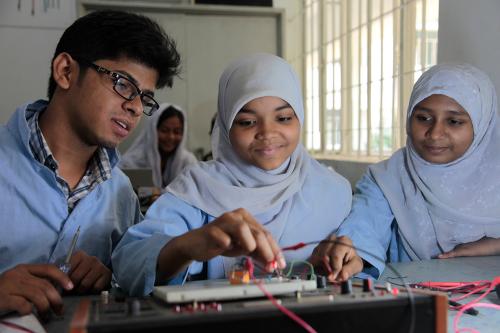
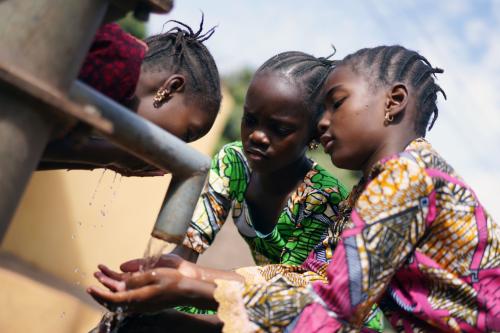
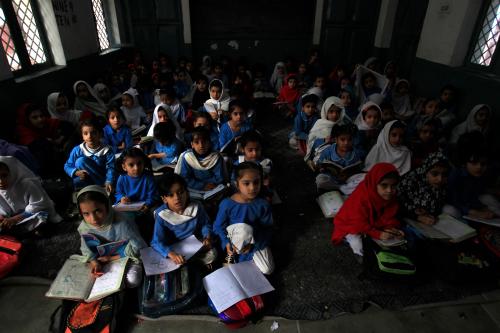

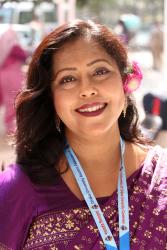
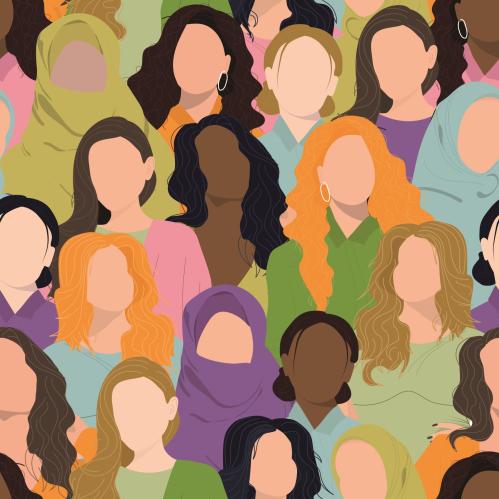


Commentary
Resolving gender gaps in ICT is critical for a more sustainable future
April 27, 2022